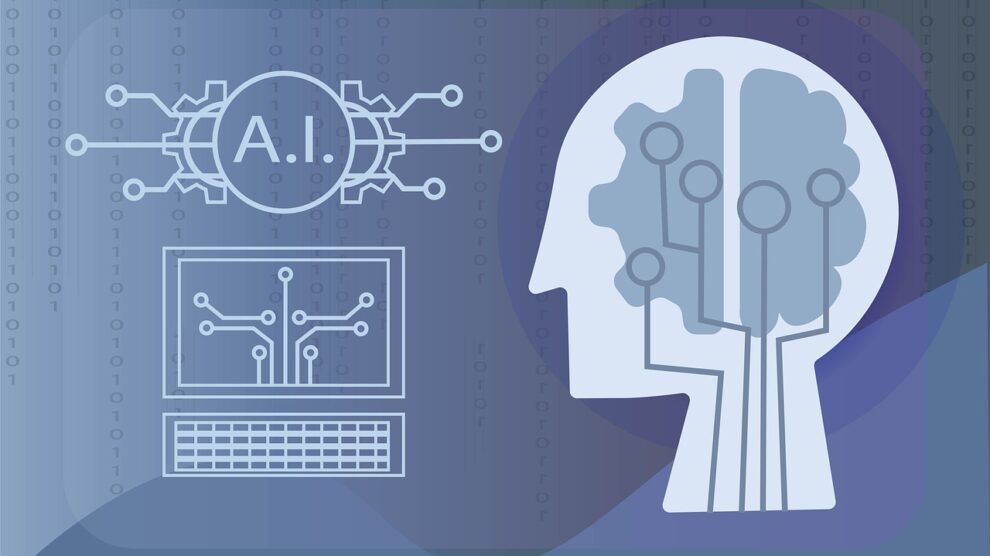Artificial intelligence is one of the most popular topics in the world of tech and has been for the past few years. While robots and cyborgs powered by artificial intelligence have yet to roam the earth, software development companies, like BairesDev, have begun to develop more practical applications as they increase in popularity and use cases across nearly all business sectors, niches, and applications.
One interesting application for artificial intelligence is its historic, current, and potential use cases in the field of national security. Historically, artificial intelligence’s major impact and most discussed areas of use have been in war operations. This includes the study of how future wars could potentially be affected and influenced by new military capabilities, especially on the battlefield.
Yet there’s more than that. Today, artificial intelligence is also used and is applicable to a wide variety of government or national-level tasks or projects. This includes things like facial recognition and the monitoring of important systems. AI can scour the internet for hate groups online, look for possible threats, and identify potential terrorists online as well.
Partially autonomous and intelligent systems have been used by the United States military as far back as World War II. However, recent advances in artificial intelligence and machine learning have caused a turning point in the use of automation in warfare.
Artificial Intelligence and the Building of a National Defense Strategy
Until now, most attention has been on the application of artificial intelligence in warfare but a movement towards strategic use within national security applications is beginning to arise in a more predominant way. AI can influence national security strategy formulation itself in many ways. While this is still fairly new territory for national leaders, it is known that this technology provides both opportunities and challenges in this process – and decision-makers have yet to discover all of either category.
Let’s start at the beginning. To put it as simply as possible, artificial intelligence systems are basically computers that are able to learn how to do things based on a set of algorithms and mechanisms that use a trial and error process to figure out right from wrong actions. These machines then use this data and apply what they have learned to diagnose future information, events, or make predictions.
Artificial intelligence could help influence who joins and succeeds national security teams and the profession itself, how machines provide us with information and even assist in necessary responsible oversight within the industry.
Future Predictions of Artificial Intelligence Use
Over the past five years, researchers in artificial intelligence have demonstrated remarkable progress when it comes to technological advancements and applicable uses – at a much faster rate than was ever anticipated. Most AI advances are happening in the private sector and in the world of academics, but existing capabilities have already proved to have incredible potential in the realm of national security and beyond.
Based on a recent study conducted by the Congressional Research Service, the following are just a few ways that artificial intelligence technology will change and impact national security in the near future.
- Machine learning and artificial intelligence technology will empower higher degrees of automation in activities that would otherwise require large amounts of manpower, such as cyber defense and satellite image analysis.
- Strategy, organizations, priorities, and resources allotted to the United States national security community will be significantly impacted due to the transformative power of AI.
- Advances in artificial intelligence will drive change in three major areas of national security: information, military, and economic superiority.
- In terms of military superiority, AI will help create new capabilities within the sector while making existing ones more affordable. For example, AI-enabled tech that is already commercially available will help improve long-range strike capabilities with drones. Areas of the military that require highly skilled individuals, such as cybersecurity and threat operations, will be (and have already begun to be) majorly automated.
- Artificial intelligence will enhance the capabilities of the information sector not only in the collection, interpretation, and analysis of data but in creating data itself for helping aid in decision-making. You can read this whitepaper to learn more about the role of AI in business.
- Some experts claim that artificial intelligence will spur the next industrial revolution. This will help reshape the relationship between economies around the world while helping smaller countries develop an advantage they may not have had otherwise.
- In terms of military tech, nuclear, aerospace, cyber technology, and biotech industries will all be significantly impacted by the implementation of artificial intelligence.
Although the implementation of artificial intelligence at a national security level will continue to revolutionize many areas, it does not come without its share of challenges. This technology has already come a long way but is still in its early phases.
It is impossible to fully foresee where it is going and what will be possible over the next decade or two. Tomorrow’s national security policymakers and military leaders will have a slew of new data “weapons” and literal weapons at their disposal with this technology – and they must take the time to think through the necessary boundaries required along with these advances.





